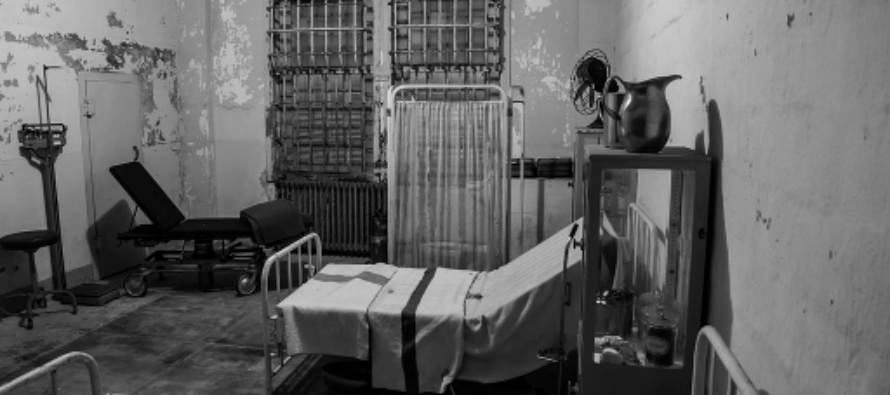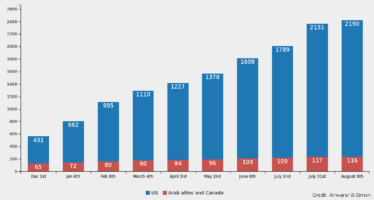Irish State Rules to Deprive Vulnerable Man of Liberty

![]()
“SAGE ADVOCACY, the Support and Advocacy Service, issued a statement after the judge’s decision in which it expressed deep disappointment that one of its clients who had resisted wardship in order to live in the place of his choice had lost his legal identity, his rights as a citizen and his ability to choose where he lived based on legislation dating from 1871.” (Irish Times)
…How ‘modern’ then or how relevant to contemporary developments is Ireland’s current legal system? Or maybe how compassionate is it? Or is that even an appropriate question (yet) to ask those who often determine our fate from above? Or how does this apparatus, with the power to take away what little freedoms we think we possess, view these same fundamental rights and freedoms? And from whose perspective does it issue… or whose interests does it represent? And how skillful is this system in traversing the difficult terrain balancing the state’s need to rule and the individual’s need for liberty, a crucial element, we know up to now, historically, in creating consumers for the voracious market?
Questions maybe worth the asking… but surely rising to the surface following Ireland’s High Court Ruling on 7 August last where the Irish state, despite contradictory medical evidence, ruled to deprive a man in his sixties with complicated health issues of his liberty and confine him to a nursing home by making him a “ward of state”, taking away, as the advocacy group Sage Advocacy said, his “legal identity” his “rights as a citizen” as well his right to make basic choices about how or whether we live, or die…
“He had told one doctor he understood a seizure could kill him but would rather be happy at home, where he could visit his mother’s grave, than safe in the nursing home.” (Irish Times)
Who wouldn’t?
The ruling was in response to an application by the state’s Health Service Executive for the man to be made a ward of court giving the court the opportunity to decide whether he possesses the capacity to make important decisions about his life and welfare.
The man himself opposed this “reactionary” HSE application to have him made a ward of court as well seeking to leave the nursing home and return to his own home.
A “ward of state”?
“To be made a Ward, the court must be satisfied that the person is of unsound mind and incapable of managing their own affairs. In some cases, a person can be taken into Wardship for their own protection. This would normally only arise in the case of a person with a mental disability rather than a psychiatric illness.” (Citizens Information)
…Sort of ‘funny’ when you realise the current state of the Irish health service – chaotic, to be polite, and its executive, the HSE, apparently fairly incapable of managing its own affairs but still not disbanded by the current right-of-centre government, probably in response to the amount of vested interests (as opposed to the people in need of medical care) getting their needs met from the dysfunctional apparatus.
This body bringing the application to remove the man’s fundamental freedom (even in his own so-called ‘best interest’), the HSE has even been described in the Irish Times as “a ghoulish creature”:
“The HSE itself, which was supposed to have been abolished, lives on as a ghoulish creature that refuses to die, despite being universally reviled as the scapegoat for the problems in the system.”
The unnamed man whose choice was to remain in his own home despite the potential health risks this posed to his life gave one of the reasons as it was close to his mother’s grave where he visited each day….
“Supported by the elder advocacy group Sage Advocacy, he objects to a Health Service Executive application to have him made a ward of court. That cannot happen unless the court decides he lacks capacity to make decisions about his welfare and finances.” (Irish Times)
Mr. Justice Peter Kelly
Acknowledging that the court had heard what he described as “a clash of medical evidence” regarding the man’s capacity to look after himself:
“Mr Justice Kelly said there were three questions he had to answer: Is the appellant of sound mind; is he incapable of managing his own affairs and is it necessary and appropriate for him to be taken into wardship. He preferred the evidence of the medical experts who were of the view the man was of unsound mind.” (Irish Times)
Differing Medical Opinion
“A treating consultant geriatrician and court-appointed medical visitor, who is also a consultant psychiatrist, said that the man lacked capacity.
Two consultant geriatricians who assessed him in May disagreed and believed he had the necessary capacity.” (RTE)
Who interprets the Law?
Interestingly enough, on the 2nd July the judges of the Court of Appeal allowed a family appeal against the same Mr. Justice Peter Kelly’s earlier ruling in a different case, where a 93 year old woman had been “detained” in a hospital having been made another “ward of court”. In this instance it seems the appeal was successful on 2 other counts of the “detention in hospital” with the judges in the Court of Appeal pointing out:
“Article 40.1 of the Constitution provides all detention must be in accordance with law and no power to detain this woman was identified.
The reasons of the detainer were not relevant and there was “simply no halfway house” between liberty “unfettered by restraint and an arrest”.
If the courts were to accept this self-created power of detention, the “logical consequences” would be tens of thousands of people with dementia or impaired capacity in nursing homes and similar institutions might be restrained leaving.
While that could in many cases be done for good clinical reasons, it might also be done for convenience and, perhaps in a small minority of cases, “for less noble reasons”.
There is no statutory power equivalent to Section 23 of the Mental Health Act 2001, under which a psychiatric hospital can prevent a voluntary patient leaving for 24 hours, or any common law power permitting the hospital preventing the woman leaving at an appropriate time and place if she wanted to do so.
The common law has always rejected the claim personal liberty could be compromised on such a basis and this applied even more in the context of a Constitution which commits itself to upholding the freedom and dignity of the individual and guarantees to protect the person in Article 40.3.2 and personal liberty in Article 40.4.1.” (RTE News)
Would it be justified to wonder why the concept of liberty is applied in one situation in one way, and in another in a different way, and in the meantime perhaps, losing sight of the individual trees because of the complexity of the forest?
A history of abuse
Likewise, when it comes to court rulings, there appears little consideration given to the other complexities involved, not least the numerous scandals involved in the institutions, both private and of the state, in this country when it comes to vulnerable individuals.
There are now too many reports of elderly and other vulnerable persons being abused in these settings because they lack the power to defend themselves or oftentimes, even speak out, and those with responsibility and the duty to protect them are actually their tormenters and abusers.
Of the many, people might remember the Leas Cross scandal where Peter McKenna, a 60-year-old man with Down syndrome and Alzheimer’s died 13 days after being transferred to the Leas Cross nursing home in the year 2000.
Mr. McKenna was also a “ward of court”. And in this instance being a ward of court due to his significant vulnerability did not seem to amount to much, as the Report into his death clearly showed.
Sage, the advocacy group involved in the current case, went so far in 2017 as to challenge the Irish state at the UN Committee against Torture alleging many elderly and vulnerable people are being “detained” in nursing homes because the state is unwilling to fund alternative, more compassionate (and often safer) alternatives.
They say taht the State’s bias towards nursing home care on the basis that there is still no statutory funding allocated for home care limits the options available to older people and amounts to inhuman and degrading treatment.
“Highlighting that almost 5,000 people over 65 years old were resident in hospital in 2011, the State’s bias towards funding nursing home care, the impact of lack of home care or alternative models of care to meet individual’s wishes, Sage Advocacy argues that these practices and lack of State action leads to inhuman and degrading treatment”. (Sage Advocacy)
Summary, without a conclusion…
Is a nursing home the place anyone wants to spend the rest of their lives in? Is that our only choice? Or, rather, will you have a choice?..
Are there no alternatives? Or is it rather that the alternatives cost the state money? And money in this instance meaning prioritising human need over profit; in a world now where social care has seen many set-backs in the face of the privitisation of care in the interests of those wishing to turn it into a business, financial profit, rather than human need or compassion, being the incentive…
So if you can’t afford to live at home with support… don’t think of asking the state to provide the necessary help, either in planning comprehensive community care services or in funding the existing ones where there is a need…
And, finally, in the case of this unnamed vulnerable man in his 60’s, what sort of a society are we living in here where despite the enormous wealth we squandered over the last 20 years, the question of providing adequate supports to assist individuals with high support needs in their own homes and communities is hardly on the agenda?
“It is truly saddening that the High Court, which should vindicate the rights of vulnerable people, should share the viewpoint of some of the most reactionary elements within the HSE and objectively take the view that it is better that a vulnerable person be held in custody in a congregated care setting … rather than challenge them to organise basic and necessary home care services.
“Speaking on RTÉ’s News at One, SAGE ADVOCACY solicitor Mary Condell said what the man had wanted was very simple – to live at home in his own place.
“Ms Condell said at no stage was there a “safe discharge plan” drawn up for the man as an alternative…”
Yes. No plan. No money. No support. No one gives a s**t, in other words… if you aren’t lucky enough (or wealthy enough) to fork out for the additional (and usually enormous) expense?
A DARK DAY
A dark day – not just for the individual now “incarcerated” in a nursing home as a “ward of state”…
…but for us all, who live in a world where business as usual is coming to mean more than simple caring.
…and where contradictions get lost in law books rather than finding their solution in the compassionate spaces of the human heart.
Just an opinion… or, maybe, a note of desperation that we now see how far, or rather how little, we have advanced on the road to creating deeply human and caring societies in our profoundly damaged world?
séamas carraher
Image:
Hospital ward in Alcatraz prison, San Francisco, California
By, William Warby from London, England
Attribution-NonCommercial-ShareAlike (CC BY-NC-SA)
Related Articles
Contra una invocación abusiva de la legítima defensa en la lucha contra el terrorismo
![]()
Circula en la red un llamado colectivo suscrito por una gran cantidad de profesores de derecho internacional, asistentes e investigadores, titulado “Contra una invocación abusiva del derecho de legítima defensa para hacer frente al terrorismo”
Traffic Jam
![]()
by Michael Busch [Cover of Pardis Mahdavi’s book “Gridlock”] Pardis Mahdavi, Gridlock: Labor, Migration, and Human Trafficking in Dubai.
Turkey Jails HDP MP Figen Yüksekdağ – AGAIN…
![]()
Figen Yüksekdağ and her co-chair Selahattin Demirtaş have been in jail since November 2016




